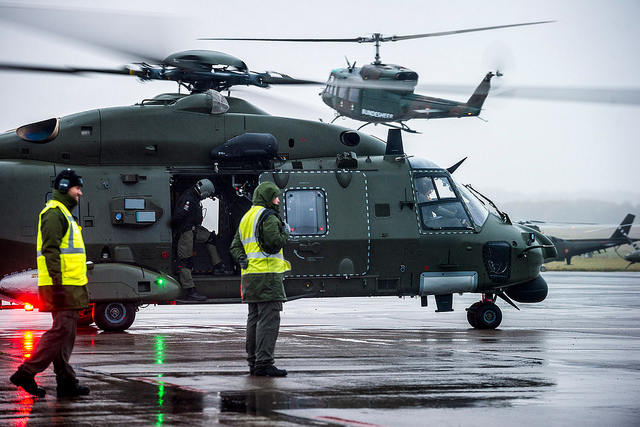The European Council has adopted a decision formally establishing Permanent Structured Cooperation (PESCO), and 25 EU Member States have presented plans to work together on a first set of 17 collaborative defence projects.
In further steps towards the shaping of a future European Defence Union, the European Council has adopted a decision formally establishing Permanent Structured Cooperation (PESCO), and 25 EU Member States have presented plans to work together on a first set of 17 collaborative defence projects.
PESCO is an instrument in the EU Treaty to enable willing Member States to pursue greater cooperation in defence and security. On 13th November, 23 Member States (Austria, Belgium, Bulgaria, Czech Republic, Croatia, Cyprus, Estonia, Finland, France, Germany, Greece, Hungary, Italy, Latvia, Lithuania, Luxembourg, the Netherlands, Poland, Romania, Slovenia, Slovakia, Spain and Sweden) took a first step towards launching Permanent Structured Cooperation on defence by signing a joint notification and handing it over to High Representative Federica Mogherini.
Since then, Ireland and Portugal have also joined, bringing the total number of participating countries to 25. The 25 participating Member States have also agreed a Declaration announcing the preparation of initial collaborative projects in areas including the setting up of an EU medical command, military mobility, maritime surveillance, and cyber security.
This could include some of the projects presented by Member States today in the framework of PESCO. Additionally, the European Defence Fund fully finances grants for collaborative research projects, with first grant agreements expected to be signed before the end of 2017. Member States are expected to reach agreement on this Fund at an upcoming Council meeting.
While PESCO is purely intergovernmental, the European Defence Fund will create incentives for Member States to cooperate on joint development and acquisition of defence equipment and technology through co-financing from the EU budget and practical support from the Commission.
A major question mark hanging over the entire undertaking concerns the role of the UK — Europe's only defence heavyweight, alongside France — in future European defence structures when and if the ongoing Brexit process is completed.

